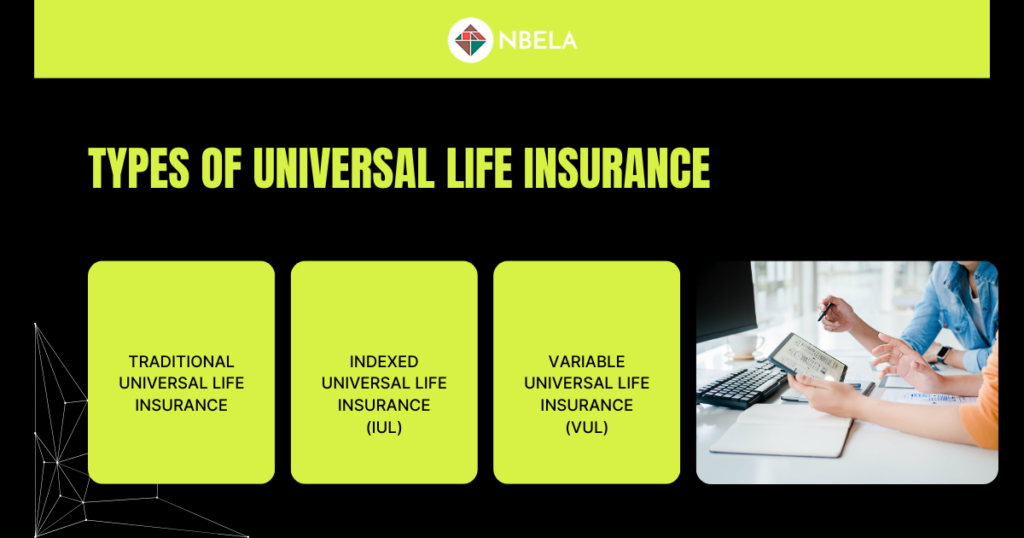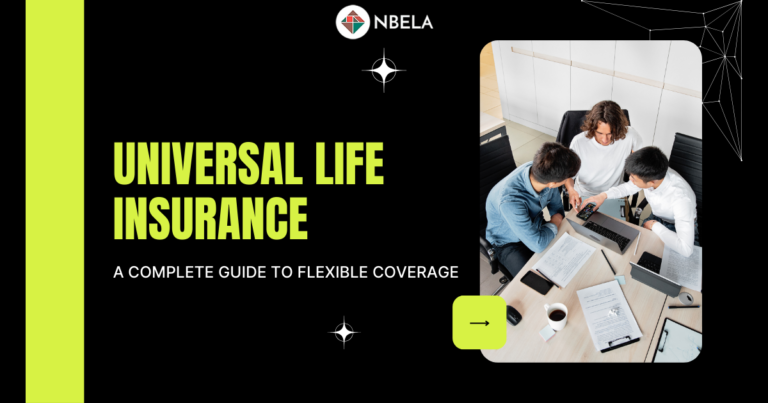Universal life insurance is a popular option for individuals seeking a flexible, long-term insurance policy that also accumulates cash value. Unlike term life insurance, which provides coverage for a set period, universal life insurance offers lifetime coverage with the ability to adjust premiums and benefits.
In this guide, we will explore how universal life insurance works, its benefits, drawbacks, and how it compares to other life insurance options. We’ll also discuss strategies to maximize its value and answer frequently asked questions.
What Is Universal Life Insurance?

Universal life insurance (UL) is a type of permanent life insurance that offers both a death benefit and a savings component. The policyholder has flexibility in adjusting premium payments and the death benefit amount, making it a versatile financial tool.
Key Features of Universal Life Insurance:
- Permanent Coverage: Provides lifelong insurance as long as premiums are paid.
- Flexible Premiums: Policyholders can adjust their premium payments within certain limits.
- Cash Value Growth: A portion of the premium goes into a cash value account, which grows over time.
- Adjustable Death Benefit: The death benefit can be increased or decreased to suit changing needs.
- Investment Component: The cash value earns interest, and in some cases, policyholders can choose investment options.
How Universal Life Insurance Works
Universal life insurance combines life insurance coverage with an investment element. Here’s a step-by-step breakdown of how it works:
- Premium Payments: A portion of your payment covers the cost of insurance, while the rest goes into the cash value account.
- Cash Value Growth: The cash value earns interest over time based on a predetermined rate or market performance.
- Accessing Cash Value: Policyholders can withdraw or borrow against the accumulated cash value.
- Flexible Adjustments: You can adjust premiums and death benefits as needed, provided the policy’s requirements are met.
- Policy Charges: Monthly fees, cost of insurance charges, and administrative fees are deducted from the cash value.
Types of Universal Life Insurance

There are different types of universal life insurance, each offering unique benefits and risks.
1. Traditional Universal Life Insurance
- Offers a fixed interest rate on cash value.
- Provides moderate growth with minimal investment risk.
2. Indexed Universal Life Insurance (IUL)
- Cash value growth is linked to a stock market index (e.g., S&P 500).
- Offers higher growth potential but with certain limits.
- Includes a floor to protect against market downturns.
3. Variable Universal Life Insurance (VUL)
- Allows policyholders to invest cash value in different sub-accounts similar to mutual funds.
- Higher growth potential but also comes with greater risk.
4. Guaranteed Universal Life Insurance (GUL)
- Focuses on providing a guaranteed death benefit rather than cash value accumulation.
- Premiums remain level, making it a more predictable option.
Pros and Cons of Universal Life Insurance
Pros:
✅ Lifetime Coverage: Unlike term life insurance, UL provides lifelong coverage. ✅ Flexibility: Policyholders can adjust premiums and benefits as needed. ✅ Cash Value Growth: The savings component can serve as an additional financial asset. ✅ Tax Benefits: The cash value grows on a tax-deferred basis, and policy loans are tax-free. ✅ Potential for Investment Growth: Some UL policies offer market-linked growth opportunities.
Cons:
❌ Complexity: UL policies require active management and understanding of fees and investment risks. ❌ Higher Costs: Compared to term life insurance, UL premiums tend to be more expensive. ❌ Investment Risk: Market fluctuations can impact cash value growth in indexed and variable UL policies. ❌ Surrender Charges: Withdrawing funds early may result in penalties and fees.
How Universal Life Insurance Compares to Other Policies
| Feature | Universal Life Insurance | Whole Life Insurance | Term Life Insurance |
|---|---|---|---|
| Coverage Length | Lifetime | Lifetime | Fixed term (10-30 years) |
| Premium Flexibility | Yes | No | No |
| Cash Value | Yes | Yes | No |
| Investment Options | Yes (depends on type) | Fixed rate | No |
| Cost | Moderate to High | High | Low |
How to Choose the Right Universal Life Insurance Policy

Choosing the right policy depends on several factors, including your financial goals, risk tolerance, and long-term needs. Here are some steps to help you decide:
- Assess Your Needs: Determine if you need permanent coverage or if a term policy would suffice.
- Compare Different Types of UL Policies: Choose between traditional, indexed, variable, or guaranteed UL based on your investment preferences.
- Understand Fees and Charges: Check administrative costs, insurance charges, and surrender fees.
- Consider Your Investment Knowledge: If you prefer conservative growth, traditional UL or GUL may be better than VUL.
- Consult a Financial Advisor: A professional can help you determine the best policy based on your personal and financial situation.
Also Read : Liability Insurance: Protecting Yourself From Financial Risks
Conclusion
Universal life insurance is a flexible and versatile financial tool that provides lifelong coverage, cash value growth, and investment opportunities. However, it requires careful consideration and ongoing management to maximize its benefits. By understanding how it works and comparing different options, you can determine if universal life insurance aligns with your financial goals.
If you’re looking for a customizable life insurance policy with long-term benefits, universal life insurance may be a suitable choice. However, it’s essential to weigh the costs, risks, and potential rewards before committing.
Frequently Asked Questions (FAQs)
1. Is universal life insurance a good investment?
Universal life insurance can be a good investment if managed correctly. It offers tax advantages and cash value growth, but it also involves fees and potential market risks.
2. Can I withdraw money from my universal life insurance policy?
Yes, you can withdraw or borrow against the cash value of your policy. However, withdrawals may reduce the death benefit, and loans must be repaid with interest.
3. How does universal life insurance differ from whole life insurance?
Whole life insurance has fixed premiums and guaranteed cash value growth, while universal life insurance offers flexibility in premiums and investment options.
4. What happens if I stop paying my universal life insurance premiums?
If you stop paying premiums, the policy may lapse unless you have sufficient cash value to cover the cost of insurance charges.
5. Who should consider universal life insurance?
Universal life insurance is ideal for individuals who need lifelong coverage, want flexible premium payments, and are interested in cash value accumulation as part of their financial planning.

